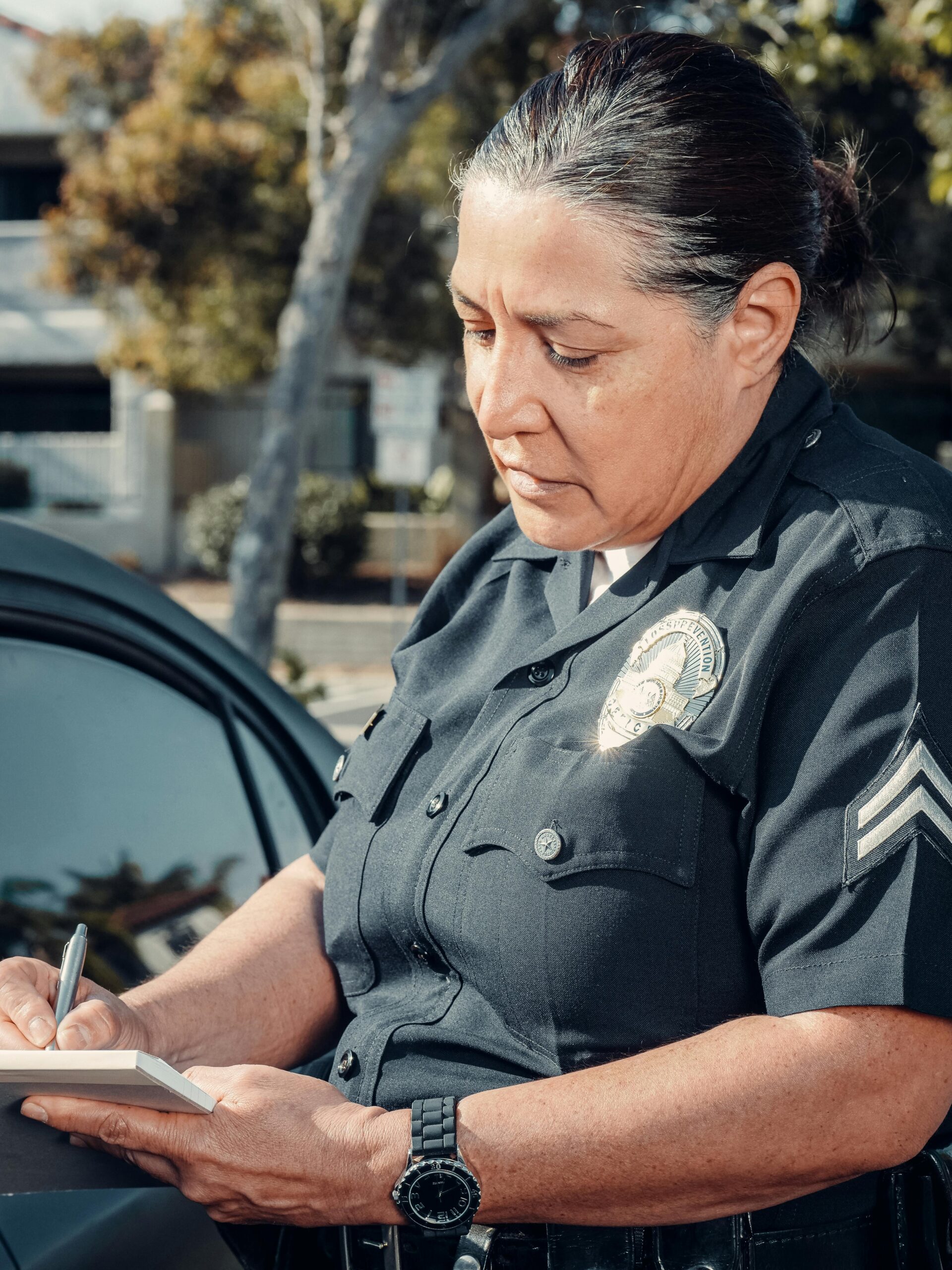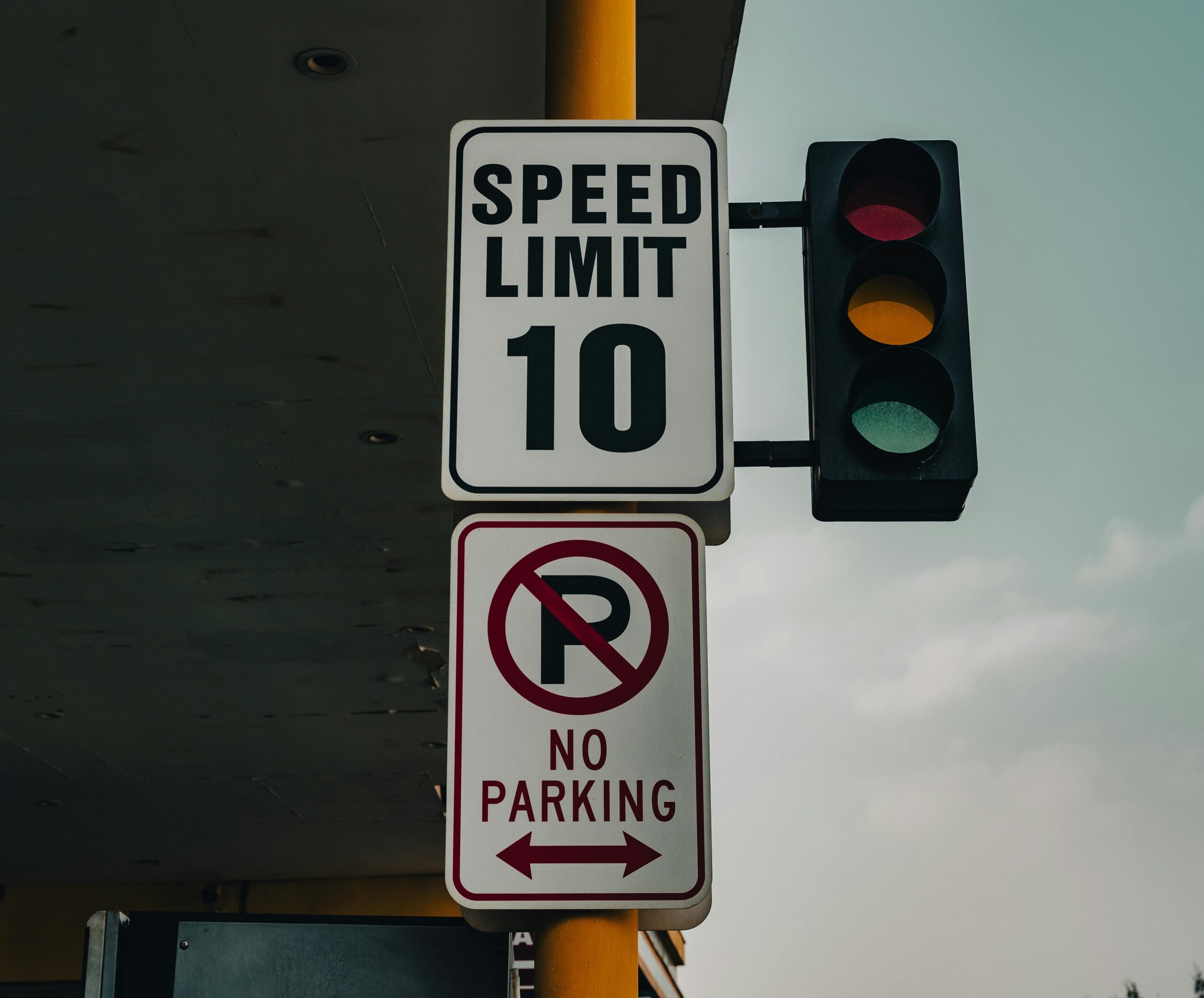A traffic stop is when a police officer pulls over a vehicle for violating traffic laws or suspicion of illegal activity. It is a temporary detention to investigate a possible crime or violation of the law and you are not free until told. By maintaining composure, knowing your rights, and following these guidelines, you can navigate a traffic stop with confidence and respect for both your rights and the duties of law enforcement officers:
Before The Stop
When you see police lights or hear sirens behind you, safely pull over to the right side of the road. Use your turn signal to indicate your intention to stop.
If immediate stopping is not possible (ex: on a busy highway), slow down, turn on your hazard lights, and look for the nearest safe area to pull over, such as a wide shoulder or well-lit spot.
Roll down your window, shut off your engine, and turn on your interior light. Place your hands on the steering wheel to keep them visible and wait for the officer to approach. Avoid making sudden movements or reaching for items unless told to do so.
During the Stop
Remain Calm and Respectful
Stay calm and be polite when the officer approaches. Feel free to ask for the reason for the stop, but avoid arguing or becoming confrontational even if you disagree with it.
Provide Documents
Upon request, you are lawfully obligated to provide your driver’s license, vehicle registration, and proof of insurance.
Exercise your Rights
Right to Remain Silent: You can choose not to answer questions beyond providing basic identification information. Some examples of questions the officer may ask which you do not have to answer include:
Questions about your immigration status, unless directly relevant to the traffic stop.
Personal questions unrelated to the reason for the stop, such as your plans or where you are heading.
Questions about other passengers unless they are involved in the violation or suspected of criminal activity.
Right to Refuse Searches: You can refuse to consent to a search of yourself, your vehicle, or your belongings. If the officer has probable cause (reasonable basis for believing that a crime may have been committed), he will be able to conduct a search without your consent needed.
Follow Instructions
Cooperate with the officer’s lawful requests. This may include stepping out of the vehicle or other specific instructions related to the stop.

After the Stop
-
Documentation
Note down the officer’s details, including their name and badge number. This information can be helpful for any follow-up actions or complaints.
-
Review the Citation
If issued a citation, review it carefully and note the deadline for responding. You are required to sign the citation, however, your signature only acknowledges that you received it and does not admit any guilt.
-
Seek Legal Advice if Necessary:
If you feel your rights were violated during the stop or if you intend to contest a citation, seek legal advice from a qualified attorney.


Additional Tips
Understand the traffic laws in your area and be aware of your rights as a driver.
Keep your vehicle registration, insurance, and driver’s license up to date and easily accessible.
Ensure safety for yourself and others during any traffic stop.
